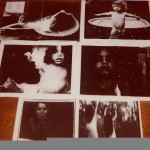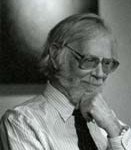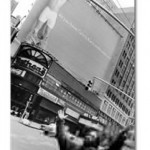November 10, 2001
Emergent Teleology and Nabokov’s Aesthetics
Although Vladimir Nabokov may be better known for his outstanding literary achievements, he also had gift for science. While acting as curator at Harvard’s Museum of Comparative Zoology in the 1940s, he became an expert on a group of butterflies popularly known as “Blues.” He named one species and several have been named after him. He published nine articles on lepidoptery in prestigious scientific journals. During this time, he also developed compelling ideas about evolution. He argued that some instances of insect mimicry did not result from Darwinian survival strategies; that is, slight resemblances could not be furthered by the function or purpose they served, leading gradually to better resemblances. I contend that Nabokov’s understanding of the origins of biological forms can be compared to recent work in evolutionary biology, namely structural evolution and neutral evolution. I also argue it was Nabokov’s aesthetic interest in the mechanisms behind teleological phenomena that gave him the insight to construct a theory of mimicry that now appears quite progressive for its time.


 September 28, 2001
September 28, 2001

